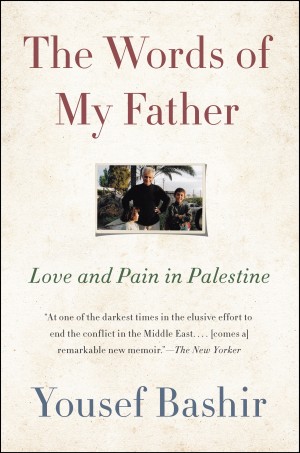After serving for over two decades as an intelligence officer in the Israeli Defense Forces, working primarily in the West Bank and Gaza, Avi Shalev enrolled in Al-Qasemi College, an Arab Islamic (Sufi) college in the town of Baqa al-Gharbiyye, about thirty minutes from Netanya. He was the first Jewish student to attend Al-Qasemi. His interest came from the desire “to learn about the art, science, literature, philosophy and language of a culture that was once the epicenter of the enlightened world … ” In two years of study, he would gain much more than an academic understanding of Arab culture. Shalev would face suspicion, but he’d also confront and seek to reconcile his own mistrust of the community he’d worked in for over twenty-four years. At his acceptance interview, Hassan, Al-Qasemi’s spokesperson, shared with Shalev that he had “been waiting for more than twenty years for the one [Jew] who would dare cross the line and ask to study at Al-Qasemi.”
Each chapter of Shalev’s memoir explores the exchanges he had with professors and students, mingled with the challenges he faced in his studies, particularly with Arabic. In the chapter titled “Breaking Barriers,” Shalev goes for coffee with fellow student Mira and her husband, Tamer. Mira and Tamer are interested in attending a master’s program in Islamic Studies at the Free University in Berlin. Mira and Tamer are welcoming of Shalev, but Tamer, despite his teaching certificate from an academic institution accredited by the State of Israel, is reluctant to participate in any program connected to the “Zionist movement.” This duality — living and working within the State of Israel while also apprehensive about full participation in Israeli life — is a recurring theme in Shalev’s conversations.
Another throughline is the author’s empathy for the personal and familial difficulties that haunt the Israeli Arab community. Shalev writes, “I have … encountered young people suffering from deep loneliness, social alienation, or personal disappointments.” Any of these things, Shalev says, can occasionally “result in violent acts.”
In the chapter titled “Modern Arabic Poetry,” Shalev comes to recognize that understanding his fellow students requires more than understanding their culture and language. It requires that he “set aside everything you know about yourself and listen to every word the other party says.… Listening to what is really being said, and not only what we want to hear.”
The Only Jew in the Room is a cross-cultural exploration that dismantles stereotypes and fosters a new appreciation for the beauty and complexity of Israeli Arab society. It reinforces the idea that tolerance develops only by sitting with both radical curiosity and palpable discomfort. Arab and Jewish Israelis must listen to and learn from each other if there is ever to be peace.




